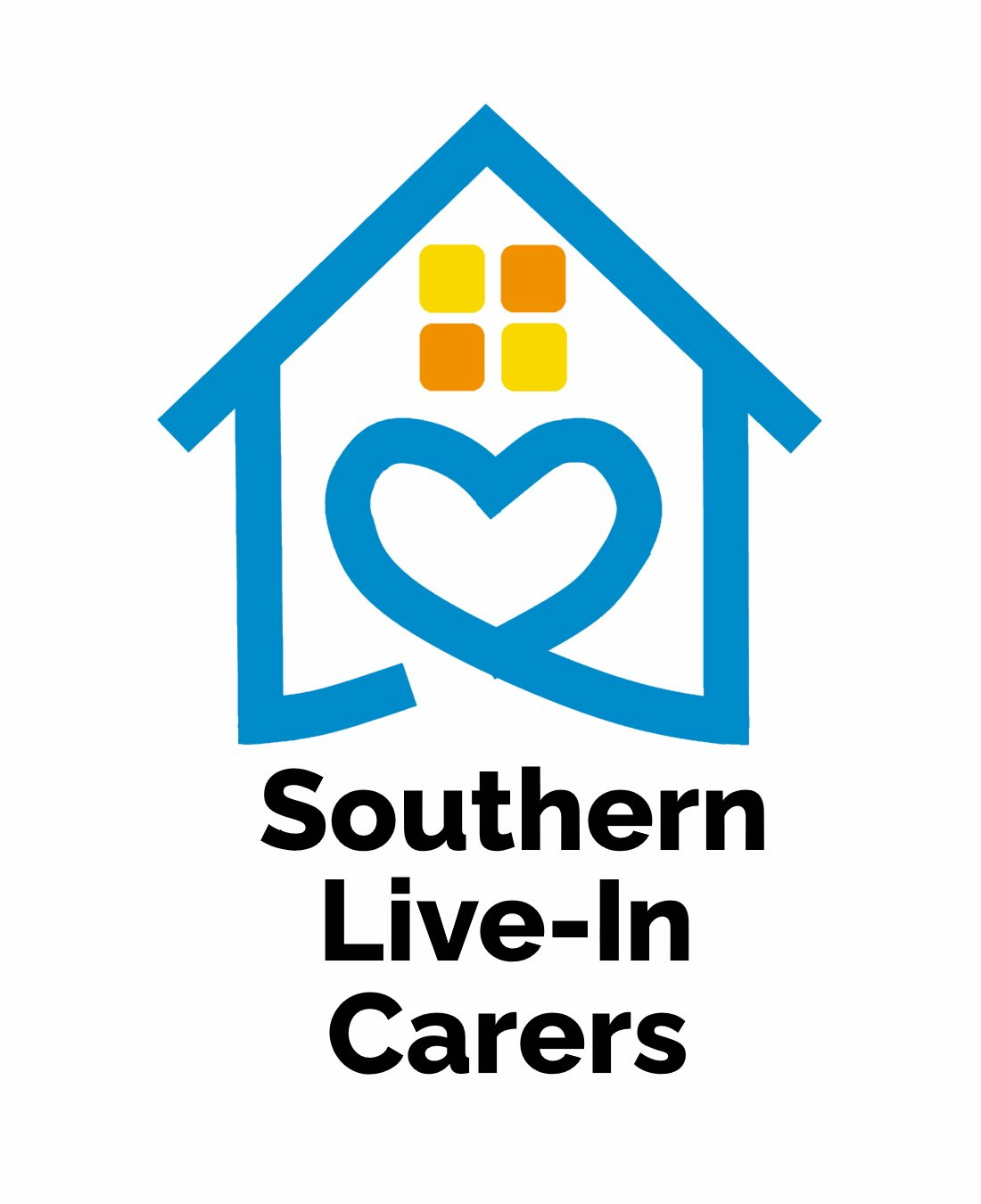"What Training Do I Need As Live-In Carer?"
Alexandra Rapley • 22 July 2021

This article looks at the training requirements of an agency that Live-in Carers register with for the purpose of finding work (clients to care for). Each agency will have a different registration criteria for training so asking ‘what training do I need?’ is a good question to ask.
I’m Alex Rapley, the operations manager at Southern Live-In Carers and I am always happy to talk through our training requirements
with carers when they call to register with us.
In no doubt that to carry out the best care and make your customer feel safe and secure in your hands, is not just about experience, but undertaking excellent training and the knowledge of up-to-date practice, laws and policies.
All Live-in Carers should be professionally trained. Whether you are employed by a live-in care agency that provides your training or are a private self-employed Live-in Carer you should ensure you have adequate training to care for your customers competently and confidently.
Care agency / Care providers will want their Carers to have been recently training to meet the minimum National training standards which covers:
- The roles of the Healthcare Support Worker and Adult Social Care Worker
- Your personal development
- Effective communication
- Equality, diversity, and inclusion
- Duty of care
- Safeguarding
- Person-centred care and support
- Health and safety
- Moving and Handling
- Safe handling / Administration of Medication
- Handling information
- Infection prevention and control
These standards define the minimum you should know, irrespective of your individual work role. While meeting these minimum standards is not the same as being competent in your role, they do provide the foundation for safe and effective practice.
For practical and health & safety reasons, it is preferable that training is learnt in a classroom, where the carer is face-to-face with the trainer. This ensures that the carer gets hands-on experience and learns first-hand the reasons for best practice when using equipment or carrying out certain techniques. This is especially true for training in Moving & Handling, Safe handling / Administration of Medication and First Aid training.
Southern Live-In Carers training courses
offer so much more than just the minimum standards as they want live-in carers to be more than minimum standard carers. The list of what's in Southern Live-In Carers training
is endless, but includes Dementia, nutrition and food hygiene, fire safety awareness, health & safety, infection control, and so on.
Due to the COVID-19 pandemic our classroom training
numbers have been reduced to ensure social distance guidelines are being met and training is held within a COVID secure building.
Having care certificate, NVQs, nursing and /or care degree certificates are all great and you should be rightly proud of these, it is expected that minimum mandatory training is kept up-to-date annually, and knowledge of the latest laws, policies, and procedures is evident.
You may also be asked for your training details from your carer insurance company, in the event of an accident. So regular training gives your customer peace of mind, knowing that they are in safe hands.

Countless studies show that those who work alone are at higher risk of feeling isolated from the world. Anyone who has ever been a lone worker, or regularly worked away home can identify the feeling of isolation that it can bring. It can be easy to go from breakfast to dinner without speaking out loud to another soul, or only your one customer and this can be lonely. But it is not only lonely, but it can also be bad for our mental health. Humans are pack animals. We are designed to interact, communicate, and verbalise our feelings. We laugh, rant, chat, theorise, learn, and share naturally. It’s the reason why we have so many verbal and non-verbal ways of communication. So, working alone is almost unnatural for us, and this can cause depression. It is important to remember that being a lone worker doesn’t always mean being alone. A lone worker can speak to customers all day long. But this isn’t the same as company. Lone Working and Lonely Working on your own can seem like a great idea if your colleagues are less than desirable (admit it, we all have some colleagues we could live without) but doing it day in, day out can get lonely. Lone workers are more likely to be assaulted, and are more vulnerable to injuries, illness, slips, falls, and aggression. But working alone also means lone workers are often isolated from peers and may miss some of the more enjoyable sides of being in a team-laughter, support, sharing concerns, and receiving encouragement. Also, we have all heard the adage ‘a problem shared is a problem halved’, something lone workers logistically find it more difficult to do. Open Communication Working in isolation can make lone workers feel distanced and isolated from the company they contacted with, even if they have a great time in their placement. It’s important for lone workers to regularly catch up with other colleagues and build positive working relationships. If you are having a hard time at work and dealing with mental health problems, it’s important to communicate your feelings to your agency. In a study by Mind – the mental health charity, it was found that 47% of workers experienced a mental health issue in their current role and 50% of study participants did not tell anyone. Remember, reporting mental health is the same as reporting a physical injury and should be treated the same way by your agency. Foreseeable Risk Working alone can be unpredictable and can lead to unexpected harm – both mentally and physically. As a lone worker, it is important for you to work with your agency on identifying foreseeable risks that may impact you whilst you work. Having a collaborative approach whilst conducting regular risk assessments provides you and your agency a broader oversight of the challenges you may be presented with in your placement, allowing you to discuss measures that could be implemented – including your mental health. Work-Life Balance During Covid-19, maintaining a healthy work-life balance is a challenge, especially for lone worker. To combat this, it is important to set a schedule for your working hours as you would pre-Covid-19, with regularly scheduled breaks to help reduce stress levels. Creating A Supportive Environment As an agency, we also have a role in creating a supportive environment in the placements. Regularly discussing mental health with our contactors and checking up on them, so everyone feels valued and supported. It’s important that all contractors of the SLIC team know how to spot the signs of their own possible poor mental health and letting the agency know they are struggling. Some early signs might be: Poor concentration Worrying more Low moods Less interested in day-to-day activities Panic attacks However, mental health is not always so visible which is why it’s important to talk. There are many mental health aids and help lines out there, here are a few to keep to hand when you may need them: Samaritans Self Help App Samaritans Help Line How to Access NHS Mental Health Services Mind Infoline

As a Self-Employed Carer or Personal Assistant, you will need to have Public Liability Insurance (PLI) for carers in place. Public Liability Insurance is a key insurance product for carers. It can cover you if you have a claim for compensation from a client or another third party. It can also cover you if your client receives an injury during your care work. Working as a Self-Employed Carer comes with all the usual perks that you would expect when running your own business, from choosing the hours that you work to having more control over the financial aspects of your job and being able to pick your clients for yourself. On the other hand, there are many things that you need to consider when running your own care business, such as self-employed carer expenses like tax & insurance. The effect that Carers and Personal Assistants have on an individual’s life is significant and the role is often rewarding, but it also comes with a range of risks, such as. • Accidental Injury to any person in relation to your work (e.g, your client, a member of the public) • Injury to yourself as a result of your work • Allegations of negligence or abuse • Loss or damage to property This is because there are some risks involved in the job, especially if you must give medicine to your client or help them move from room to room. Having a PLI policy protects you in situations that involve personal injury, errors, accidents, abuse claims and other risks within the job role. Most of our SLIC carers use Surewise insurance who offer specialist self-employed carers insurance. If you don’t already have this, we can support you with this.

Eating a balanced diet is always important but doing this becomes even more critical as people age. Elderly customers often experience decreased appetite and have less interest in food. To make matters harder, eating can become difficult, especially due to teeth problems and related issues, which is why soft foods become crucial. But a good soft food recipe makes it much easier to eat and stay healthy. The most powerful options are recipes that are packed full of nutrients and still tastes delicious too. Here is six great tasting & healthy recipes that you could entice your customer with

Documents which show ongoing entitlement to work in the UK a passport showing that you are a British citizen or a citizen of the United Kingdom and Colonies and have the right of abode in the United Kingdom a passport or national identity card showing that you are a national of the European Economic Area or Switzerland a residence permit, registration or certificate or document certifying or indicating permanent residence issued by the Home Office, Border and Immigration Agency or UK Border Agency to a national of a European Economic Area country or Switzerland a permanent residence card issued by the Home Office, Border and Immigration Agency or UK Border Agency to a family member of a national of a European Economic Area country or Switzerland a Biometric Immigration Document issued by the UK Border Agency to the holder which indicates the person named in it is allowed to stay indefinitely in the United Kingdom, or has no time limit on their stay in the United Kingdom a passport or other travel document endorsed to show that the holder is exempt from immigration control, is allowed to stay indefinitely in the United Kingdom, has the right of abode in the United Kingdom, or has no time limit on their stay in the United Kingdom an Immigration Status Document issued by the Home Office, Border and Immigration Agency or UK Border Agency to the holder with an endorsement indicating that the person named in it is allowed to stay indefinitely in the United Kingdom or has no time limit on their stay in the United Kingdom, when produced in combination with an official document giving the person’s permanent National Insurance Number and their name issued by a Government agency or a previous employer a full birth certificate issued in the United Kingdom which includes the name(s) of at least one of the holder’s parents, when produced in combination with an official document giving the person’s permanent National Insurance Number and their name issued by a Government agency or a previous employer a full adoption certificate issued in the United Kingdom which includes the name(s) of at least one of the holder’s adoptive parents, when produced in combination with an official document giving the person’s permanent National Insurance Number and their name issued by a Government agency or a previous employer a birth certificate issued in the Channel Islands, the Isle of Man or Ireland, when produced in combination with an official document giving the person’s permanent National Insurance Number and their name issued by a Government agency or a previous employer an adoption certificate issued in the Channel Islands, the Isle of Man or Ireland, when produced in combination with an official document giving the person’s permanent National Insurance Number and their name issued by a Government agency or a previous employer a certificate of registration or naturalisation as a British citizen, when produced in combination with an official document giving the person’s permanent National Insurance Number and their name issued by a Government agency or a previous employer a letter issued by the Home Office, Border and Immigration Agency or UK Border Agency to the holder which indicates that the person named in it is allowed to stay indefinitely in the United Kingdom, when produced in combination with an official document giving the person’s permanent National Insurance Number and their name issued by a Government agency or a previous employe r

This might seem like a lot of work, but if you have the right steps in place then it is easier than you’d expect. Managing money and being a responsible self-employed carer and taxpayer does not have to be difficult. Stay up to date by reviewing government guidance here . This can have plenty of benefits, including more flexibility and control. But it also means you oversee your own money and finances. This includes checking your earnings, submitting tax returns, expenses and ensuring you are compliant with the HMRC . For more information, visit the Money Advice Service .
